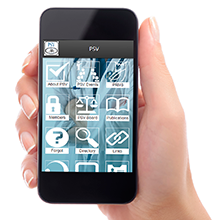Summer/Fall 2020 Issue |
|
A Perspective on Preclinical Medical Education During the Coronavirus Pandemic
By Steven Forte, BS; Stephanie L. Peglow, DO, MPH, FAPA, FASAM
Learning during the coronavirus pandemic has brought about challenges for many students but, has also afforded some students benefits. As we transition back to operations as usual, lessons from this experience may be applied to allow for a more individualized medical curriculum that recognizes how students may benefit from both virtual and in-person education.
To combat person-to-person spread, nearly all medical schools quickly transitioned to a 100% virtual classroom early in the pandemic. For students in the preclinical (M1 and M2 years), this meant online classes for nearly all our education. As a pre-clinical student at EVMS, I found the most obvious change to be increased efficiency in the delivery of course material. Virtual case-based learning took less time to complete and I found it more fruitful than traditional case-based learning.
For some of these sessions, the goal is to reinforce concepts by requiring students to recall information or reinforce clinical reasoning skills. However, the reality of small groups is that the same students consistently answer questions from facilitators first. Students who recall information less quickly often do not get the opportunity to actively recall information or reason through problems; several students dominate sessions while other students try to keep up. I was pleased to see that, at my school, educators did not try to replicate the traditional experience through Zoom sessions, but instead, embraced the virtual experience. Students were able to work through cases at their own pace, identify gaps in knowledge, and then use UpToDate or similar resources, as we will in our clinical years, to complete cases. Although traditional, case-based learning may be better for many students, or even the aggregate of students, we should question whether a one-size-fits-all approach is best.
Furthermore, the aforementioned virtual small-group sessions, combined with accelerated lectures, and elimination of commuting all contribute to increased independent learning time. The greater efficiency brought about by these changes has better enabled some students to learn and reinforce preclinical knowledge in ways that best fit our learning styles. Personally, I have had great success with virtual learning resources. Increased flexibility has enabled me to spend more time on these resources and the benefits are evident. Online learning provides more opportunities for preclinical students to engage with innovative, evidence-based education resources that complement our own learning styles.
Taken together, the preclinical changes made during the coronavirus pandemic have decreased my burnout and benefitted my educational goals. With an understanding that each student learns differently, we should recognize the beneficial adaptations that have come from the transition to virtual learning. Voices like mine are most likely in the minority when it comes to our enthusiasm for online education, but we are not alone. Let us and our successes not be forgotten if, and when, schools return to full capacity. Let us not hope for a return to normal, but instead, for a more individualized, more goal-oriented preclinical education.
YOUR NEWSLETTER IS NOW AVAILABLE ON YOUR SMARTPHONE AND TABLET!
JOIN PSV TODAY!
PLAN NOW!
PSV 2020
FALL MEETING
September 25-26, 2020
Hotel Roanoke
&
Conference Center
Curio Collection by Hilton
APA Find a Psychiatrist
Are you accepting new patients?
Opt into APA’s “Find A Psychiatrist” database. To view the functionality or opt-in,
CLICK HERE
FYI: A link for this option has been added to the PSV website. Select the “About” button and then “Find a Psychiatrist” from the drop down.




